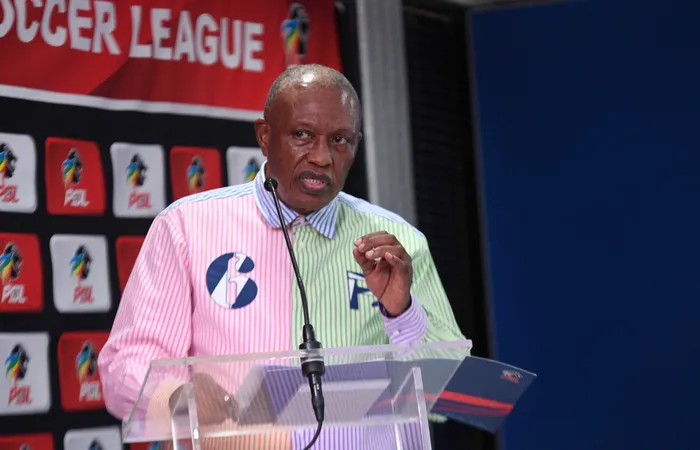The PSL are trapped in a catch-22 situation over SuperSport United's sale to Siwelele FC
Will the PSL rise to the occasion and approve the sale of SuperSport United, or will they face the wrath of the Minister of Sport if they do not approve the sale of SuperSport United to Siwelele FC

PSL Chairman Irvin Khoza speaks during a press conference PSL Chairman Irvin Khoza speaks during a press conference. Photo: Sydney Mahlangu/BackpagePix
Image: Sydney Mahlangu/BackpagePix
Comment
Chairman Irvin 'Iron Duke' Khoza and the Premier Soccer League's executive committee find themselves trapped in a catch-22 situation while ratifying the sale of SuperSport United to Siwelele FC.
SuperSport International has confirmed the sale, but final approval from the PSL is required.
The PSL has yet to release a statement regarding the transaction, a silence that is in keeping with their traditional approach of keeping such matters under wraps. Historically, the executive committee, led by chairman Irvin 'Iron Duke' Khoza, prefers to manage these situations in the boardroom. Very likely, they will communicate directly with the buyer and seller rather than providing public updates.
The catch-22 situation arises because of two factors. Gayton McKenzie's son owns Siwelele, and the Premiership must have at least 16 teams.
If the PSL does not approve the sale, it will incur the wrath of Minister of Sport McKenzie. He will come down on the PSL with the force of a ton of bricks, and it is something that Khoza and his executive are acutely aware of.
Known for his outspokenness regarding football governance, McKenzie would likely not let such a decision slide without significant backlash, an uncomfortable reality facing the PSL.
The PSL requires at least 16 teams in the Premiership, rendering this sale not just a financial deal but also essential for sustaining competitive relevance within the league.
Keep in mind that long after the Royal AM sale received approval, Khoza held a press conference to clarify the reasons behind the PSL's endorsement of the deal. He stated that the PSL had to operate with 16 teams due to sponsorship requirements.
Fans, analysts, and stakeholders are closely watching how the PSL navigates this tumultuous decision, hopeful for transparency while apprehensive about the political ramifications of the choices made.
In this battleground of sport and politics, the PSL must tread carefully to ensure that the sale aligns with the league’s aspirations while curbing the potential backlash from a government minister who wears his passion for football on his sleeve.
Every decision made within the boardroom will reverberate through the corridors of power well beyond the confines of football. For Khoza and his comrades, the stakes have never been higher.
The sentiment at the heart of this saga echoes the age-old adage: damned if you do, and damned if you don't.
Related Topics: